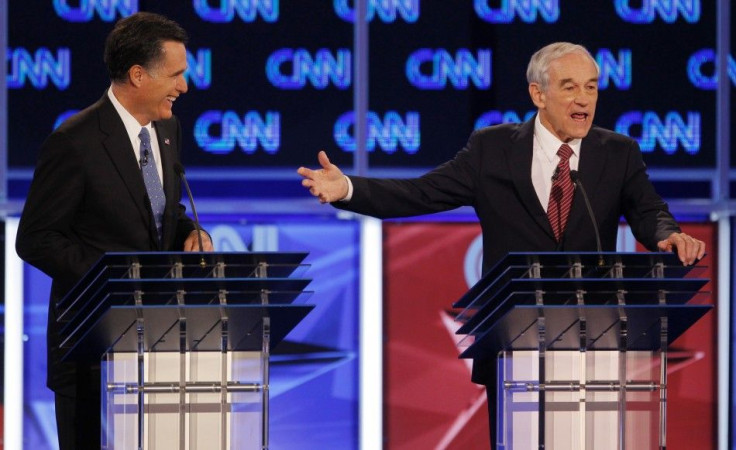Maine Caucuses Appear to be Two-Man Race Between Mitt Romney and Ron Paul

Maine's Republican presidential caucuses look like a two-man race between Mitt Romney, the party's current front-runner, and Ron Paul in a small-state contest that has taken on new importance for Romney after his losses in three states last Tuesday.
Voting in dozens of local caucuses across Maine's 16 counties has been going on since late January. Results of a nonbinding straw poll will be released by the state Republican Party around 7:30 p.m. on Saturday.
Among the Republican contenders seeking to take on Democratic President Barack Obama in the November general election, only Romney, the former governor of nearby Massachusetts, and Paul, a U.S. representative from Texas, have significant ground operations that can spearhead a get-out-the-vote effort.
Maine's population ranks 41st among the 50 U.S. states, but the contest is key for Romney after he lost to former U.S. Sen. Rick Santorum of Pennsylvania in Missouri, Minnesota, and Colorado.
A win could help right the Romney ship, while a loss would be another sign that Republican voters have reservations about his conservative bona fides.
Paul held several well-attended events in Maine late last month. A rally in Freeport on a frigid day attracted an estimated 1,000 Paul loyalists and curious L.L. Bean shoppers -- no small feat in a state where the total number of votes cast in the 2008 Republican caucuses was 5,491.
Paul returns to Maine on Saturday to speak at caucus locations in three towns and an evening rally in Portland.
Romney made his first 2012 visit to Maine on Friday, staging a packed town-hall meeting in Portland. Visits to two caucus sites were added to his schedule for Saturday.
Maine encompasses everything from oceanfront estates, such as one owned by former President George H.W. Bush in Kennebunkport, to remote potato farms near the state's northern border with Quebec. Obama won the state by 18 percentage points in the 2008 election. Maine has not voted Republican in a presidential election since 1988.
The state's largest city, Portland is only two hours from Boston and within Republican ranks it is regarded as natural territory for Romney, who easily won the primary in neighboring New Hampshire a month ago.
But in the north and away from the coast, Maine's vast, sparsely populated wilderness areas are seen as Paul strongholds -- areas where many residents have a frontier spirit and are wary of excessive government involvement in their lives.
In addition, many of Maine's rural areas are struggling economically. Romney, the multimillionaire former venture capitalist, has not fared well with lower-income voters in most states so far.
Maine's Republican Party has reported large, enthusiastic turnouts at its caucuses. If true, then that would mark a change from other states to vote in the Republican contest, where turnout has often been below 2008 levels.
A number of towns that have not held caucuses in several cycles have become active again, and among those towns that have caucused, attendance has increased on an average of 100 percent, said Loretta Mikols, a committeewoman in Oxford County, on the state's western border with New Hampshire.
(Reporting by Ros Krasny; Editing by Peter Cooney)
© Copyright Thomson Reuters 2024. All rights reserved.






















